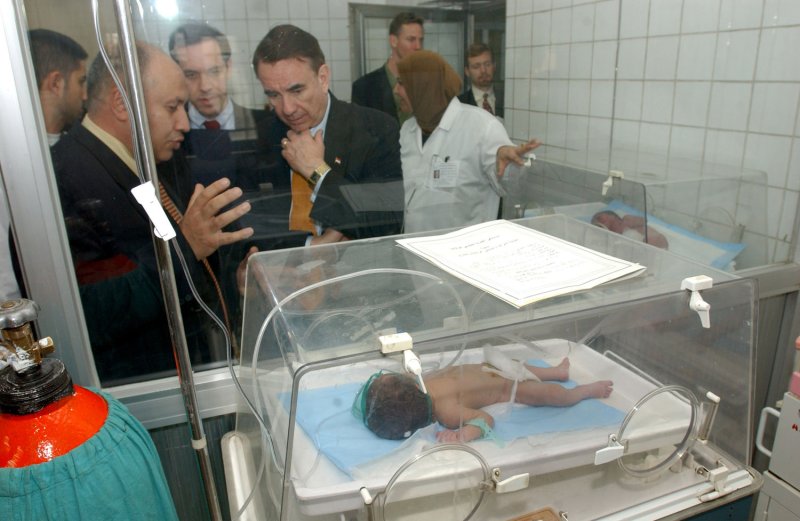The placenta, once thought to be sterile, contains a unique placental microbiome -- an aggregate of microorganisms -- bacteria, viruses and fungi. (UPI Photo/John M. Foster/Air Force) |
License Photo
HOUSTON, May 21 (UPI) -- The placenta, once thought to be sterile, contains a unique placental microbiome -- an aggregate of microorganisms -- bacteria, viruses and fungi -- on the surface and in deep layers of tissue.
Dr. Kjersti Aagaard, associate professor of obstetrics and gynecology at the Baylor College of Medicine and the Texas Children's Pavilion for Women, said the findings provide insight on the structure of the placental microbial community, its organisms and its impact on pregnancy.
"After we completed our studies of the vaginal microbiome in pregnancy, we noted that the most abundant microbes in the mom's vagina were not what populated the baby's intestinal microbiome," Aagaard said in a statement.
"
We reasoned that there must be another source 'seeding' the infant's gut at birth, so we sought to examine the placenta."
E. coli, a bacteria that lives in the intestines of healthy individuals, was the species with the highest abundance in most individuals, while Prevotella tannerae and non-pathogenic Neisseria species, both species of the oral cavity, were also detected in highest abundance.
"Interestingly, when we looked very thoroughly at the placenta in relation to many other sites of the body, we found that the placental microbiome does not bear many similarities to microbiomes closest in terms of anatomic location," Aagaard said.
"Specifically, it is not much like the vaginal or intestinal microbiome, but rather is most similar to the oral microbiome."
The placental microbiome is also unique based on whether a preterm birth occurred, the researchers found.
"Exposure of the fetus to a placental microbiome may have fundamental implications for early human development and the physiology of pregnancy," said study co-author Dr. James Versalovic, a professor of pathology at Baylor and head of pathology at Texas Children's Hospital.
The findings were published in the journal Science Translational Medicine.















